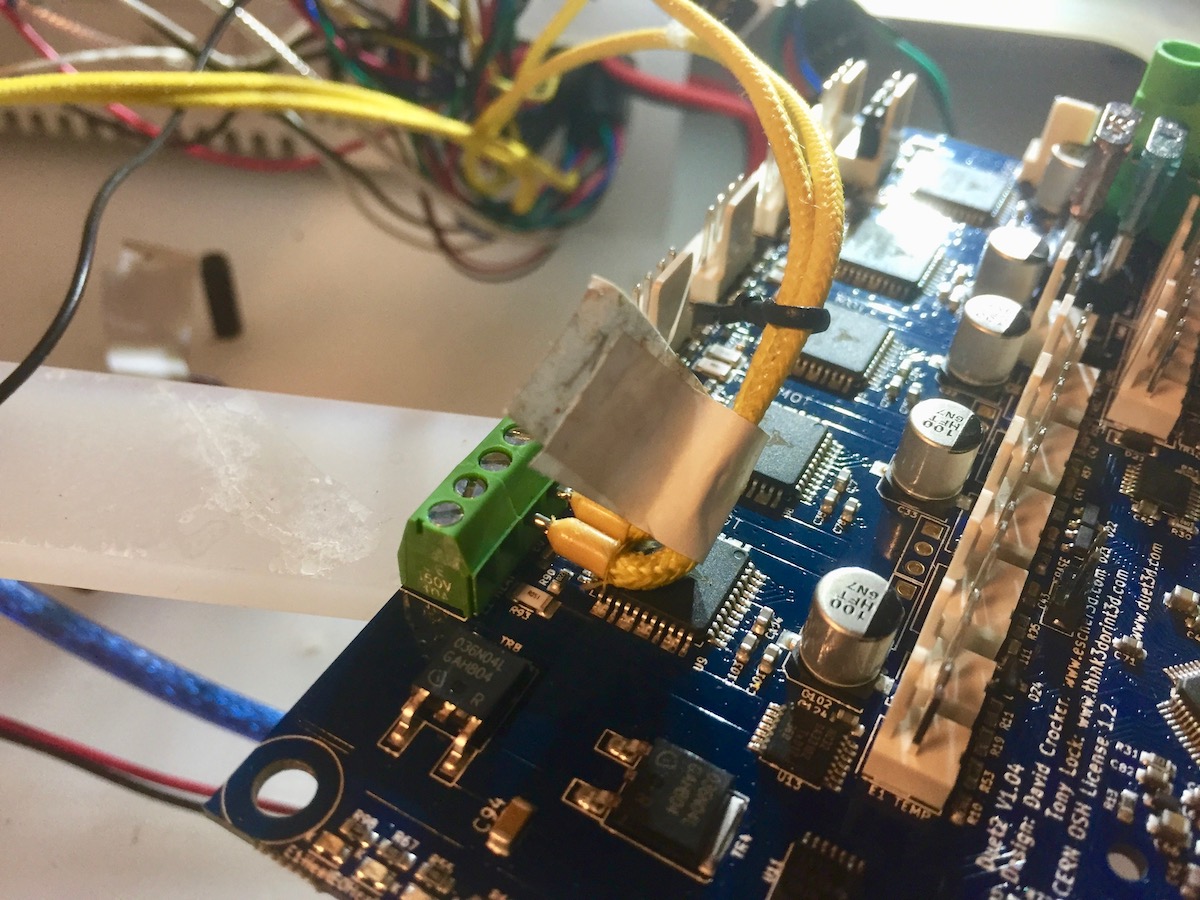Duet Wifi heater connector
-
Hmm, is it intentional that on my Duet Wifi board the heater connector faces inward?

Karel
-
No, it has been incorrectly assembled. Unless you are happy with that, please ask your supplier to replace your Duet.
Assuming this is a genuine Duet, this is the second one that has been reported recently. Our manufacturers used to connect wires to the terminals when testing the board, so this manufacturing defect would have been found at that time. They now use pogo pins that contact the terminal spills on the underside of the board.
I will ask them to add this item as an explicit visual check.
-
@dc42 Yes, it is a genuine Duet Wifi, I'll see if I run into trouble with the final assembly. Otherwise it is no problem for me.
Thanks for your quick reply. -
IMO this is an issue that should be addressed.
Even if it is not currently an issue for you, it does alter the potential for airflow over the stepper driver, and might have an impact on being able to use standard cases for the board should you choose to. While the board is still reasonably new and can be replaced, I would take care of having that done.
Well, I suppose that if it were me, I might just hop over to the solder station and fix it, but I don't know what effect that might have on warranty. (I don't use RoHS compliant solder.
 I still like my 60/40, since it's a lot less likely to have cold solder joint problems.)
I still like my 60/40, since it's a lot less likely to have cold solder joint problems.) -
@supraguy Thanks and you are right.
On second thought I'll ask my supplier for a replacement because of possible heating-issues...And soldering a SMT board is a Nono for me...

-
@supraguy said in Duet Wifi heater connector:
Well, I suppose that if it were me, I might just hop over to the solder station and fix it, but I don't know what effect that might have on warranty.
We occasionally authorise experienced users to make repairs (using unleaded solder only, in case the board needs to be returned to us in the future), but any unauthorised repairs would void the warranty. The 2-pin terminal blocks are tricky to remove because you need to heat both pins simultaneously. I use SMD tweezers to do this.
-
@dc42 Good to know. In that case, the 64/40 would most certainly void the warranty. Although I do have lead-free solder, about the only solder tools that I have that wouldn't be lead contaminated would be the ones that I use for plumbing.
Among other hobbies, I build audio amplifiers and sound processors. Much of that is through-hole soldering, but there's also a reasonable amount of SMD stuff in the signal processing. Still, I generally accept that when I put something at the soldering station, I'm saying goodbye to any kind of warranty.